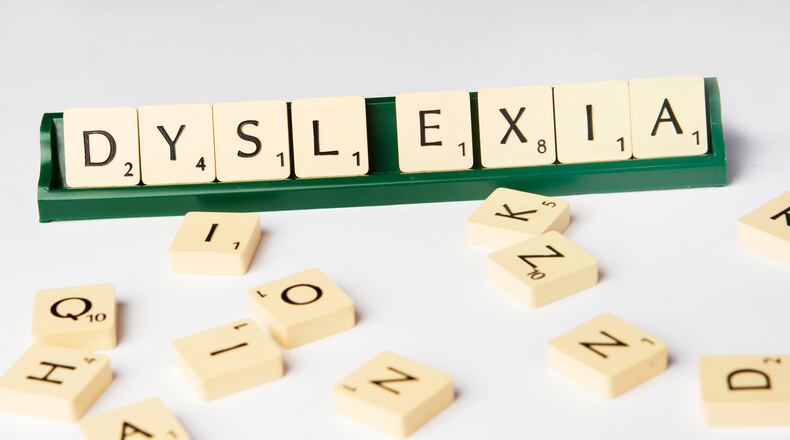Ryan Lee-James is the Atlanta Speech School’s chief academic officer and director of the Rollins Center for Language & Literacy. Before joining the Atlanta Speech School, Lee-James trained and mentored graduate-level speech-language pathologists as a faculty member at Adelphi University in New York.
In this guest column, she addresses the barriers preventing children in Georgia from being diagnosed with dyslexia.
By Ryan Lee-James
Before the pandemic, most fourth graders in our country did not have basic reading skills (65%) and very few were advanced (9%) — the bar we should hold for all children.
If you are not a skilled reader by fourth grade, you are unlikely to become a skilled reader … ever. While the numbers are troublesome for all students, it is especially concerning for three groups — Black students, English language learners and students from economic disadvantaged communities (or more accurately, children of families who have been denied opportunity for centuries). These groups had even lower proficiency rates, 18%, 10% and 21% respectively.
To make matters worse, Black, multilingual and poor children are disproportionately underrepresented in special education in the categories of Specific Learning Disabilities and Speech Language Impairment. This is important to note because students who are properly diagnosed can get access to differentiated instruction. Sadly, children as young as birth to 3 are denied access to early intervention solutions that are publicly funded.
Not surprisingly, these groups are often perceived to have more behavior problems than their white peers. Acting out is a manifestation of difficulty communicating or learning, which prevents children from productively participating at home and school.
Credit: Contributed
Credit: Contributed
Georgia’s Senate Bill 48 was passed to support identification of dyslexia and aims to impact our state’s illiteracy crisis, as research estimates 15% to 20% of children will be dyslexic. Beginning in 2024, schools in Georgia will be required to screen for dyslexia, but as it stands, whether you get a diagnosis of dyslexia depends upon a child’s race, language and economic status. The goal here is to try and untangle a complex challenge.
Under the federal Individuals with Disabilities Education Act, dyslexia is classified as a Specific Learning Disability — an umbrella category that includes difficulty with listening, thinking, speaking, reading, writing, spelling and math. Regarding eligibility determination, IDEA states what SLD does not include: “... a learning problem that is primarily the result of visual, hearing, or motor disabilities, intellectual disability, of emotional disturbance, or of environmental, cultural or economic disadvantage.”
The consequence of this language inherently disadvantages Black, multilingual and poor students by setting circumstance and disability at odds as if they cannot coexist.
Black, multilingual and poor children are disproportionately underrepresented in special education in the categories of Specific Learning Disabilities and Speech Language Impairment.
As acting out is a manifestation of difficulty communicating or learning, these groups are often perceived as having more behavioral problems than their white peers.
Access and test bias are also broad challenges with far-reaching implications. Under IDEA, schools are required to provide an evaluation unless the school believes the request isn’t substantiated. Families have rights under federal law if they feel their request has been wrongfully denied including seeking a private evaluation, but these solutions are expensive and require families to recognize their ability and right to challenge systems.
Clinical professionals rely on standardized assessments to determine eligibility. If a family can even secure an evaluation, reliability and validity of standardized tests assessments for Black, multilingual and poor children have always been questionable, at best.
This is what needs to be done:
Educators, become familiar with the languages and cultural backgrounds of your students. Because clinical indicators can overlap with characteristics of learning English as a second language or symptoms of poverty, you should understand how dyslexia (and other language and disabilities) manifests to make informed decisions about who to refer and when. Whether or not you believe a student will qualify, make the referral if you have concerns. Determining eligibility for special education is the responsibility of a team.
School and district leaders, I urge you to shift from balanced to structured literacy during this school year to make reading accessible for all children. Balanced literacy is based on flawed, debunked theory and has harmed generations of children. Even Lucy Calkins, balanced literacy guru, admitted its shortcomings. Invest dollars in structured literacy training for all teachers, instructional coaches and support staff and invest in highly skilled district reading specialists who can support implementation across schools. This model has accelerated growth in student outcomes.
After almost three years of disrupted learning, we don’t have a moment to waste. Structured literacy draws on the neuroscience (among other disciplines) that tells us how the brain learns to read. When implemented, it improves literacy trajectories for typically developing students and those with reading disabilities. It is agnostic to race, ZIP code and economic status.
Finally, Georgia policymakers, you must ensure due diligence that any legislation geared toward eradicating illiteracy in our state is inclusive of all children. Engage expert scholars and practitioners in every stage of legislation because you have the authority and responsibility to enact policies that can ensure literacy and justice for all.
About the Author
The Latest
Featured




